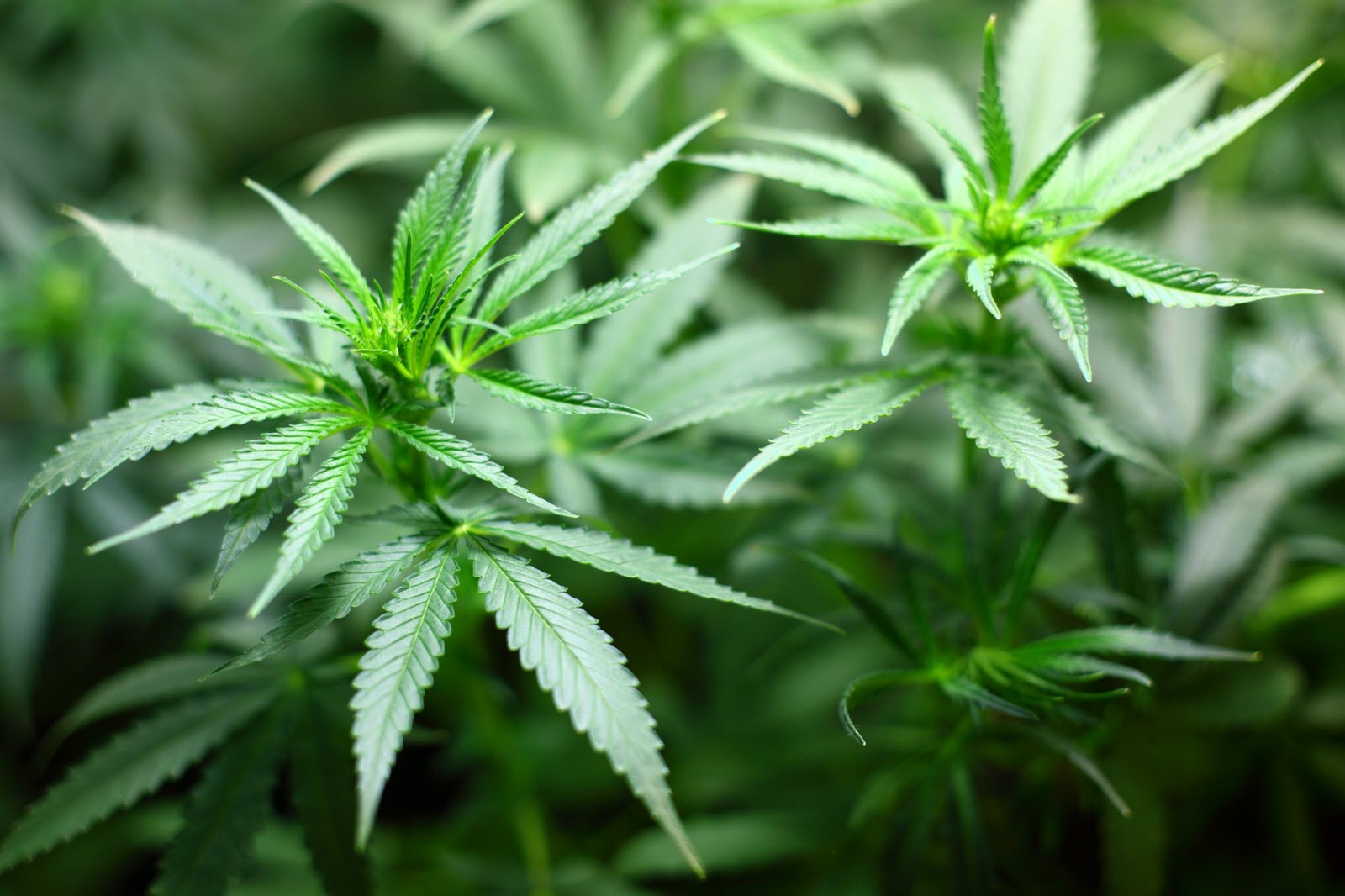THCV
Are you looking exclusively for products high in THCV? Then this category is for you! Here, only tetrahydrocannabivarin is featured, nothing less. Whether it's hash, flower, mini bud, rocks or even distillate, we do our utmost to offer you the most complete range. If you'd like to find out more about this molecule, we invite you to read our article entitled: "Everything you need to know about THCV".Our THCV products
THCV: Find out more
As we all know, the discovery and use of cannabis around the world dates back several millennia, yet it was only in the 20th century that we began to really understand the many components of this complex plant. One of these components, Tetrahydrocannabivarin (THCV), was first identified in 1973.
Although its presence in cannabis is generally minimal compared to that of THC or CBD, THCV has attracted growing interest for its unique properties, earning it a place among the most promising cannabinoids being studied by researchers and other cannabis industry experts.
However, its marketability remains very limited in view of its extremely high price! Most shops prefer to sell only more potent molecules with an intense psychotropic effect, rather than focusing on THCV.
At 420 Green Road, we've nevertheless decided to sell it in order to offer a wide range of products for everyone. Like all the cannabinoids sold on our site (CBD, CBG, CBN, CBC, H4CBD), THCV has extraordinary benefits. It would be a pity to miss out because of economic considerations!
However, the consumption of this cannabinoid should not be taken lightly. At high doses (+10%), its effects approach those of THC, and it's essential for us to inform our customers about the characteristics of this new molecule, so that their THCV purchase takes place under the best possible conditions.
What is THCV?
THCV, or tetrahydrocannabivarin, is a cannabinoid, a chemical compound found in the cannabis plant. THCV is structurally similar to THC (tetrahydrocannabinol), the well-known psychoactive compound in cannabis. However, THCV has different properties and effects.
At low doses, THCV acts as a CB1 and CB2 receptor antagonist, which means it blocks the activity of these receptors in the endocannabinoid system, part of our nervous system. Consequently, at low concentrations, THCV produces no psychoactive effects.
However, at higher doses, THCV can act as a CB1 and CB2 receptor agonist, meaning it activates these receptors and can therefore produce psychoactive effects similar to those of THC.
How is THCV created?
Unlike H4CBD, created in the laboratory from CBD, THCV is produced by the cannabis plant through a complex biochemical process. Like THC and CBD, THCV is obtained from a chemical compound called cannabigerol (CBG). CBG is often described as the "parent cannabinoid", as it is the precursor of many other cannabinoids.
In the cannabis plant, CBG is converted into cannabigerol acid (CBGA) by an enzyme. CBGA is then converted to tetrahydrocannabivaric acid (THCVA) by an enzyme called THCV synthase. Finally, when the cannabis plant is heated or aged, THCVA is decarboxylated, i.e. loses a molecule of carbon dioxide (CO2), to become THCV.
It's important to note that not all types of cannabis plant produce significant amounts of THCV. Varieties that produce high levels of THCV are often grown specifically for this purpose.
What are the differences between THC and THCV?
THC (tetrahydrocannabinol) and THCV (tetrahydrocannabivarin) are two types of cannabinoid found in the cannabis plant. Although they share a similar chemical structure, their effects on the body are distinct.
Psychic effect: THC is the main psychoactive compound in cannabis, responsible for the euphoric or "high" associated with its use. It binds to CB1 receptors in the endocannabinoid system, which can lead to changes in perception, mood, behavior and consciousness.
THCV, on the other hand, is a little more complex. At low doses, it acts as a CB1 receptor antagonist, i.e. it blocks these receptors and attenuates the effects of THC. Consequently, at low doses, THCV produces no noticeable psychoactive effect. At higher doses, however, it can act as a CB1 receptor agonist, producing psychoactive effects.
Physiological effects: The two cannabinoids also have different potential therapeutic effects. THC has been used to treat a number of conditions, including chronic pain, nausea and vomiting associated with chemotherapy, and is also used to stimulate appetite in people with certain diseases.
THCV, meanwhile, is being studied for its potentially beneficial properties in regulating blood sugar levels, which could be useful for people with diabetes. It has also been suggested that it may help reduce appetite, which could be beneficial for weight management.
Presence in the cannabis plant: THC is the most common cannabinoid in the cannabis plant, while THCV is generally present in smaller quantities. However, certain strains of cannabis are specifically bred to produce higher levels of THCV.
These differences make THC and THCV unique compounds with a wide range of potential effects.
What are the properties of THCV?
Blood sugar regulation
One of THCV's most promising properties is its potential ability to regulate blood sugar levels. Preliminary studies suggest that THCV could help regulate blood sugar levels and improve insulin sensitivity. This could make THCV a valuable tool for people with type 2 diabetes, although further research is needed to confirm these findings and determine how this property might be used therapeutically.
Weight loss
THCV is also known for its ability to suppress the appetite. This distinguishes it from THC, which is known to stimulate the appetite. This property could be useful as part of a weight management or obesity treatment program. However, as with blood sugar regulation, further research is needed to fully understand this property and its therapeutic potential.
Psychoactive effect
THCV's psychoactive effects are another notable feature. At low doses, THCV acts as an antagonist of the CB1 and CB2 receptors of the endocannabinoid system, blocking some of the effects of THC. This means that at low doses, THCV does not produce the same psychoactive effects as THC. However, at higher doses, THCV can act as an agonist for these receptors, producing a sensation of euphoria similar to that of THC.
Neuroprotective
Some research suggests that THCV may have neuroprotective effects. It has been shown to reduce tremors, involuntary movements and movement block associated with diseases such as Parkinson's. These results are still preliminary, and further research is needed to confirm these effects and explore other possible neurological benefits of THCV.
Each of these properties makes THCV a fascinating and potentially beneficial cannabinoid.
Warning: We remind you that any properties or benefits of THCV mentioned are only suppositions based on a few studies, and have not yet been formally demonstrated. THCV, like CBD, is not a medicine and is not intended to treat, cure or aid in the treatment of any disease. We are not medical doctors, and therefore cannot advise you on the use of cannabinoids for therapeutic purposes. Please contact your doctor before starting any new dietary program.
What are the side effects of THCV?
As with all cannabinoids, THCV can potentially have side effects. Although research on THCV is still limited, here are some possible side effects based on current knowledge:
-
- Anxiety
- Paranoia
- Dry Throat
- Headaches
- Nervousness
- Increased heart rate
It is crucial to stress that the manifestation and intensity of these adverse effects can fluctuate according to a variety of factors. These include the quantity ingested, the method of administration, age, body weight, as well as the general state of health of the individual consumer, among other factors.
In addition to its side effects, THCV can interact with other drugs, particularly those metabolized by the liver. This can potentially affect the efficacy of these drugs or increase the risk of side effects. If you are taking prescription medication and are considering using THCV, it is essential to consult a healthcare professional.
At the same time, we would like to warn against long-term use of THCV. It can have adverse effects on mental and physical health. These may include potential dependence, mood disorders, impaired memory or cognition, or adverse effects on lung health if inhaled.
On our online platform, 420greenroad.com, we would like to remind our customers of the precautions to be taken when consuming THCV. Each product sheet specifies that it's best consumed in the evening, and stresses the importance of not driving after ingesting it. Of course, essential advice on use, such as "not recommended for pregnant or breast-feeding women", as well as "abstain from smoking", are always indicated.
Buying THCV: Is it really worth it?
The purchase of THCV (tetrahydrocannabivarin) may be of interest to some people due to its unique properties among cannabinoids. Nevertheless, the decision to buy THCV should be based on accurate information, a clear understanding of its effects and an assessment of its suitability for your specific needs.
Since HHC was banned on June 13, many hexahydrocannabinol users have been looking for new "legal high" molecules. THCV could be one of them!
However, THCV's alleged therapeutic properties, including blood sugar regulation, satiety, neuroprotective action and high-dose psychoactive effects, could make this cannabinoid a new benchmark on the legal cannabis market.


